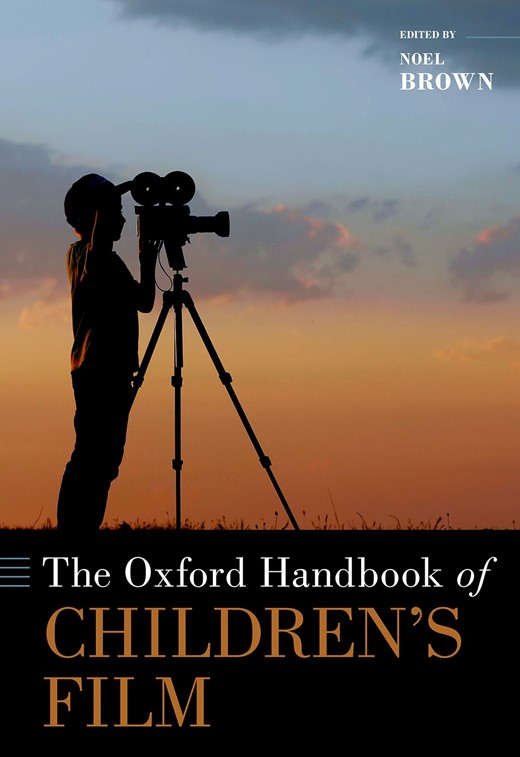 The Oxford Handbook of Children's Film
The Oxford Handbook of Children's Film
Contents
-
-
-
-
-
-
-
-
-
-
-
-
-
-
-
-
-
-
-
What’s at Stake in the Children’s Film? What’s at Stake in the Children’s Film?
-
Children’s Film after the Production Code Children’s Film after the Production Code
-
PG and the Challenge of All-Ages Content PG and the Challenge of All-Ages Content
-
The “Plague” of PG-13? The “Plague” of PG-13?
-
A “New Shocking”: The House with a Clock in Its Walls A “New Shocking”: The House with a Clock in Its Walls
-
Conclusion Conclusion
-
Notes Notes
-
Bibliography Bibliography
-
-
-
-
-
-
32 Hollywood, Regulation, and the “Disappearing” Children’s Film
Get accessFilipa Antunes is Lecturer in Humanities at the University of East Anglia. She researches childhood, horror, and popular culture, with a special focus on children’s media. Her first monograph, Children Beware! Childhood, Horror and the PG-13 Rating (McFarland 2020), charts the children’s horror media trend (1980–1999) to explore critical shifts in American cultural attitudes toward childhood and horror. Filipa has also published on genre, the PG-13 rating, and the Hollywood family film.
-
Published:20 April 2022
Cite
Abstract
This chapter argues that crisis discourses around the Hollywood children’s film use the genre as shorthand to discuss the film industry’s broader cultural value. The chapter therefore questions the tendency to downplay the children’s film’s industrial characteristics, suggesting instead a focus on how the children’s film uniquely blends industrial and cultural concerns. The analysis explores the links between peaks of crisis rhetoric and periods of dramatic industrial transformation, particularly in the context of regulation but also in Hollywood’s relation to other entertainment industries. It specifically addresses the shift from the Production Code to the ratings system in 1968, the introduction of the PG-13 category in 1984, and the emphasis on all-ages franchises in the 2010s.
Sign in
Personal account
- Sign in with email/username & password
- Get email alerts
- Save searches
- Purchase content
- Activate your purchase/trial code
- Add your ORCID iD
Purchase
Our books are available by subscription or purchase to libraries and institutions.
Purchasing information| Month: | Total Views: |
|---|---|
| October 2022 | 6 |
| December 2022 | 2 |
| January 2023 | 5 |
| February 2023 | 7 |
| March 2023 | 11 |
| April 2023 | 9 |
| May 2023 | 3 |
| June 2023 | 2 |
| July 2023 | 2 |
| August 2023 | 7 |
| September 2023 | 4 |
| October 2023 | 3 |
| November 2023 | 2 |
| December 2023 | 6 |
| January 2024 | 6 |
| February 2024 | 1 |
| March 2024 | 3 |
| April 2024 | 3 |
| May 2024 | 6 |
| June 2024 | 2 |
| July 2024 | 6 |
| September 2024 | 1 |
| December 2024 | 5 |
| January 2025 | 3 |
| February 2025 | 3 |
| March 2025 | 4 |
| April 2025 | 3 |

Get help with access
Institutional access
Access to content on Oxford Academic is often provided through institutional subscriptions and purchases. If you are a member of an institution with an active account, you may be able to access content in one of the following ways:
IP based access
Typically, access is provided across an institutional network to a range of IP addresses. This authentication occurs automatically, and it is not possible to sign out of an IP authenticated account.
Sign in through your institution
Choose this option to get remote access when outside your institution. Shibboleth/Open Athens technology is used to provide single sign-on between your institution’s website and Oxford Academic.
If your institution is not listed or you cannot sign in to your institution’s website, please contact your librarian or administrator.
Sign in with a library card
Enter your library card number to sign in. If you cannot sign in, please contact your librarian.
Society Members
Society member access to a journal is achieved in one of the following ways:
Sign in through society site
Many societies offer single sign-on between the society website and Oxford Academic. If you see ‘Sign in through society site’ in the sign in pane within a journal:
If you do not have a society account or have forgotten your username or password, please contact your society.
Sign in using a personal account
Some societies use Oxford Academic personal accounts to provide access to their members. See below.
Personal account
A personal account can be used to get email alerts, save searches, purchase content, and activate subscriptions.
Some societies use Oxford Academic personal accounts to provide access to their members.
Viewing your signed in accounts
Click the account icon in the top right to:
Signed in but can't access content
Oxford Academic is home to a wide variety of products. The institutional subscription may not cover the content that you are trying to access. If you believe you should have access to that content, please contact your librarian.
Institutional account management
For librarians and administrators, your personal account also provides access to institutional account management. Here you will find options to view and activate subscriptions, manage institutional settings and access options, access usage statistics, and more.